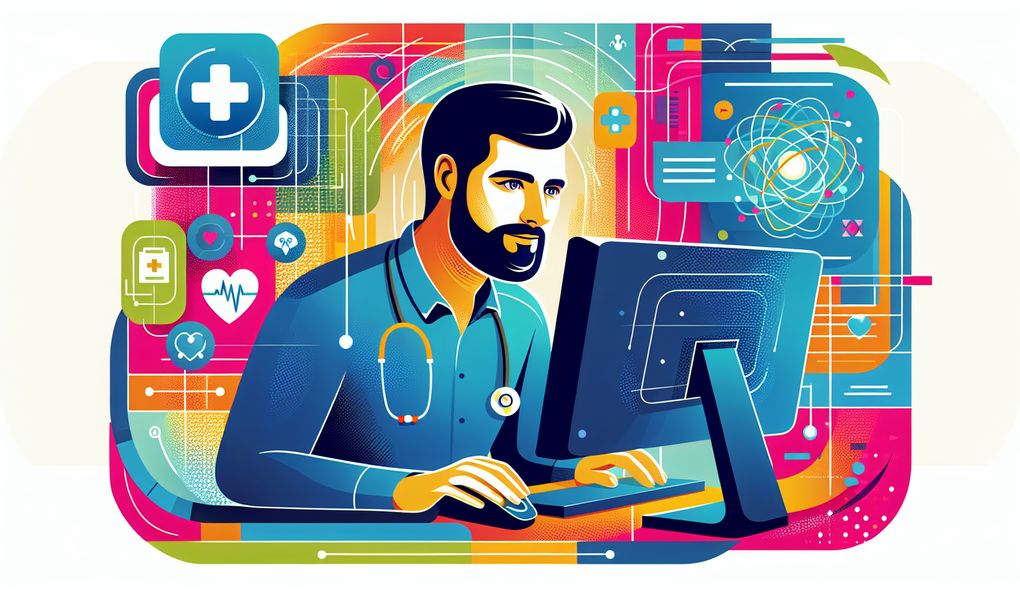What steps do you take to monitor system performance and make recommendations for improvements?
SENIOR LEVEL

Sample answer to the question:
To monitor system performance, I regularly analyze data and metrics related to the system's speed, responsiveness, and availability. This includes reviewing log files, monitoring CPU and memory usage, and tracking network traffic. Based on my findings, I identify areas for improvement and make recommendations to optimize performance. For example, if I notice high CPU usage, I may suggest upgrading hardware or optimizing software. I also collaborate with the development team to identify and address performance bottlenecks through code optimizations and database tuning. Additionally, I stay updated on industry trends and best practices to ensure that our monitoring and performance evaluation processes align with the latest standards.
Here is a more solid answer:
As a Healthcare IT Specialist, my approach to monitoring system performance involves a multi-faceted strategy. Firstly, I closely monitor key performance indicators (KPIs) such as response time, throughput, and error rates to identify any anomalies or areas requiring improvement. I utilize advanced monitoring tools and software to gather real-time data and generate performance reports. In addition, I actively engage with end-users and IT teams to gather feedback and address any performance-related concerns. For example, I conduct regular meetings with stakeholders to understand their experience with the system and identify pain points. I also collaborate with the development team to perform code reviews and conduct load testing to identify and address any performance bottlenecks. Furthermore, I stay updated with industry trends and advancements in healthcare IT systems to ensure that our monitoring practices align with the latest standards and best practices. Through my proactive monitoring and analysis, I have successfully identified and resolved performance issues, leading to improved system responsiveness and user satisfaction.
Why is this a more solid answer?
The solid answer provides specific details about the candidate's approach to monitoring system performance. It highlights their utilization of advanced monitoring tools, engagement with stakeholders, collaboration with the development team, and their commitment to staying updated with industry trends. However, it could be further improved by including specific achievements or examples of how the candidate's recommendations have resulted in improvements in system performance. Additionally, it could emphasize the candidate's ability to manage multiple projects and priorities as stated in the job description.
An example of a exceptional answer:
In my role as a Healthcare IT Specialist, I take a comprehensive approach to monitoring system performance and driving continuous improvements. Firstly, I establish performance baselines by conducting thorough assessments of key system components, including hardware, software, and network infrastructure. This involves analyzing metrics such as CPU and memory utilization, disk I/O, and network latency. By establishing baselines, I can easily identify deviations and potential bottlenecks. To gather real-time performance data, I utilize monitoring tools like Nagios and Splunk, which provide detailed insights into system health and performance trends. In addition, I leverage my strong analytical skills to perform root cause analysis and identify the underlying factors contributing to performance issues. This includes reviewing logs, conducting thread and heap analysis, and utilizing profiling tools. To address identified issues, I collaborate with cross-functional teams, such as developers, database administrators, and network engineers, to implement targeted optimizations. For instance, I have successfully recommended and implemented database indexing strategies that significantly improved query performance and reduced response times. Additionally, I actively participate in knowledge-sharing forums and attend industry conferences to stay abreast of emerging technologies and best practices in healthcare IT. By adopting a proactive and data-driven approach, I consistently drive performance enhancements, ensuring optimal system performance and user satisfaction.
Why is this an exceptional answer?
The exceptional answer showcases the candidate's comprehensive approach to monitoring system performance and driving improvements. It highlights their ability to establish performance baselines, utilize advanced monitoring tools, perform root cause analysis, and collaborate with cross-functional teams. The answer also includes a specific example of the candidate's recommendation and its positive impact on query performance. Furthermore, it emphasizes the candidate's commitment to continuous learning and staying up-to-date with industry trends. The answer could be further improved by mentioning the candidate's leadership and project management skills, as stated in the job description.
How to prepare for this question:
- Familiarize yourself with various monitoring tools and software used in healthcare IT systems.
- Develop your analytical and problem-solving skills to effectively identify and address performance bottlenecks.
- Stay updated with the latest trends and best practices in healthcare IT to ensure your monitoring processes align with industry standards.
- Highlight any previous experience or achievements related to system performance monitoring and improvement in your resume and during the interview.
- Demonstrate your ability to effectively communicate complex technical concepts to non-technical stakeholders.
What are interviewers evaluating with this question?
- Leadership
- Communication
- Critical thinking
- Technical proficiency
- Project management
- Analytical skills

